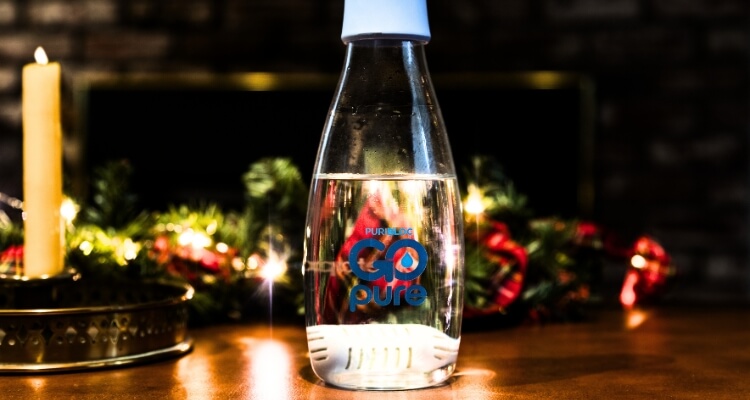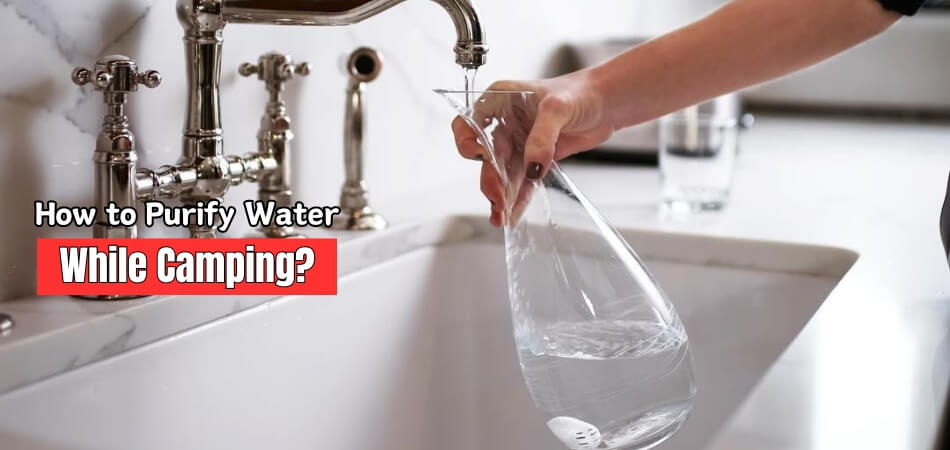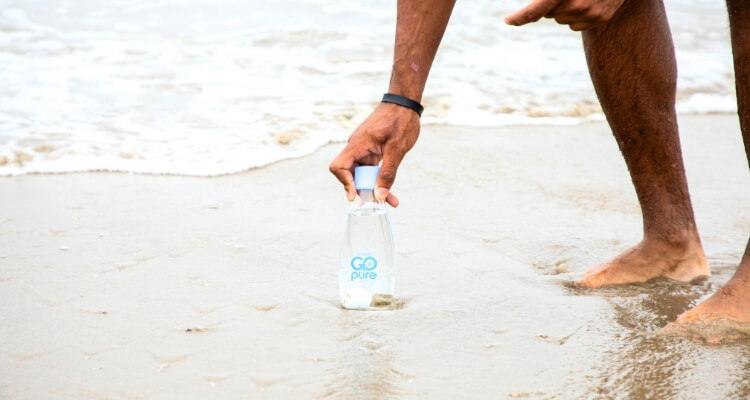Camping is a blissful escape into nature, allowing us to disconnect from technology and recharge our batteries. Though the area is visually stunning and tranquil, accessing safe drinking water remains a priority.
Keeping hydrated and healthy is essential while camping and purifying water ensures our health as well as our outdoor experience. So,How to Purify Water While Camping?
Keeping hydrated and healthy while camping is essential, and purifying water ensures our health and enjoyment of the outdoors. So, how to purify water while camping?
Water can be purified in a variety of ways while camping, such as boiling it for one minute, using chemical purifiers such as iodine or chlorine, filtering it through a portable device, or using UV light pens.
Continue reading to explore these techniques in detail and learn the best practices for maintaining your well-being while spending time in nature.
Why Water Purification Is Essential for Camping?
Water purification during camping is crucial for maintaining health and comfort in the great outdoors. Contaminants in natural water sources can include bacteria, viruses, and protozoa, all posing serious health risks. Drinking unpurified water can lead to illnesses that could cut a camping trip short.

As long as you have a GOpure filtering device, you will always be able to get clean, safe drinking water wherever you go. This simple, portable solution removes harmful pathogens and pollutants from water, making it safe to drink. It’s an essential tool for campers who value both convenience and safety in the wilderness.
Staying hydrated with purified water also enhances physical performance and overall well-being while camping. It prevents dehydration-related issues such as fatigue and dizziness, allowing you to enjoy your outdoor activities to the fullest. With clean water, you ensure your adventure remains enjoyable and safe from start to finish.
What Contaminants Can Be Found in Untreated Water?- Identifying the Risks
The act of drinking untreated water while camping might symbolize living wild, but there are risks involved. Natural water sources may contain contaminants that are harmful to your health. Listed below are the most common dangers lurking in untreated water:
Bacteria Presence
Bacteria can be found in many natural water sources. E. coli and Salmonella can cause severe gastrointestinal distress. You may experience diarrhea, cramping, or nausea as symptoms. Drinking contaminated water can quickly ruin a camping trip.
Protozoan Parasites
Untreated water is a breeding ground for protozoa such as Giardia and Cryptosporidium. The parasites are notorious for causing long-term digestive problems. The symptoms of an infection include bloating, diarrhea, and weight loss. To avoid these problems, it is crucial to ensure water purity.
Viruses in Water
Waterborne viruses like Hepatitis A and Norovirus can also be present. These viruses are smaller than bacteria and protozoa. They can lead to liver issues and severe dehydration. Always purify water to avoid viral infections.
Chemical Pollutants
Untreated water may contain harmful chemicals and metals. Pesticides, fertilizers, and industrial runoffs contribute to these pollutants. They can cause a variety of chronic health issues over time. Filtering water reduces chemical risks significantly.
Sediment and Debris
Visible contaminants such as sediment can also pose risks. These include organic matter and inorganic particles. Although they are not always harmful, they can harbor bacteria and viruses. Clear water is not always safe, so filtration is essential.
How to Purify Water While Camping?
Drinking safe water while camping is crucial to staying healthy and enjoying your time outdoors. There are several effective ways to purify water, each designed for a specific purpose and condition. Here is a step-by-step process for purifying water while camping:

Boiling Water
Start by gathering water from a clean source. Boil it firmly for at least one minute to kill all common pathogens, including bacteria, viruses, and protozoa. This method is reliable but requires a heat source and some waiting time.
Chemical Treatment
You can disinfect the water with iodine or chlorine tablets for a quick fix. Drop the recommended number of tablets into your water container, ensuring it dissolves completely. Wait at least 30 minutes before drinking to allow chemicals to neutralize harmful organisms.
Portable Water Filters
Consider a portable water filter for a convenient and effective purification method. These filters can remove physical debris, bacteria, and protozoa from the water. Some high-end models also filter out viruses, making them extremely versatile for different environments.
UV Light Purification
UV light pens are handy for treating clear water. Activate the pen and stir it through the water for about a minute to disrupt microorganism DNA, rendering them harmless. This method is effective against all pathogens but requires battery power and clear water.
Using Cloth Filtration
As a preliminary step, strain water through a clean cloth to eliminate large sediments and debris. You can use this method when dealing with turbid water, and it is especially useful before finer filtration or chemical treatment.
Solar Disinfection
Try solar disinfection for a passive and environmentally friendly option. Fill a clear plastic bottle with water and place it in full sunlight. When it’s sunny, UV rays purify the water in about six hours, but when it’s cloudy, they take two days.
Purifying Water While Camping- In Which Situations Do You Need It?
Camping trips can be challenging without clean drinking water. While water sources in nature may appear clean, they can harbor unseen contaminants. The following is a brief explanation on when and why you should purify water while camping:
Remote or Backcountry Camping
Remote areas often have natural water sources with unseen contaminants. You’re far from treated municipal water systems here. Bacteria and viruses are introduced to these waters by animals and runoff. Purifying water is crucial to avoid illness in such settings.
After Heavy Rains
Heavy rains can wash contaminants into rivers and lakes. This sudden influx can overwhelm natural filtration processes. Even previously safe sources can become risky. Always purify water after significant rainfall events.
Areas with High Human Activity
Popular camping sites might have polluted water due to high human traffic. Pathogens increase where people and animals are concentrated. Leftovers, trash, and human waste can contaminate water sources. These areas should be assumed to require water purification.
When Using Stagnant Water Sources
Stagnant water breeds mosquitoes and bacteria. It lacks oxygenation that keeps ecosystems clean. Algae and microbes grow well in these conditions. Always purify stagnant water before drinking.
If Unsure About Water Quality
Whenever in doubt about water purity, opt to purify. It’s better to be safe than sorry. Assumptions can cause health risks. Simple purification steps can prevent serious ailments.
These situations illustrate why purifying water while camping is essential for ensuring a safe, enjoyable outdoor experience. Always consider the water source and the surrounding conditions before deciding to drink directly from it.
Tips for Avoiding Mistakes While Purifing Water in The Wild
The process of purifying water in the wild is crucial to having a safe camping experience, but it’s easy to get it wrong. Identifying the common pitfalls can help you avoid them and ensure safe drinking water. Here are essential tips to keep in mind while treating water outdoors:

- Verify Water Source Quality: Choose the cleanest source available to minimize contaminants. Avoid water from areas near human activity or livestock.
- Use Sufficient Purifying Agents: Be sure to follow the recommendations for iodine or chlorine. Too little may not effectively kill all harmful organisms.
- Allow Adequate Time: After treating water with chemicals or UV light, ensure you wait the necessary time before drinking. Impatience can lead to consuming still-contaminated water.
- Check Filter Integrity: Regularly inspect your portable filter for damage or clogs. A compromised filter won’t adequately protect you from microorganisms.
- Avoid Cross-Contamination: Keep purified water separate from untreated sources. Use different containers or mark them to prevent mix-ups.
- Test Equipment Beforehand: Before leaving, test your purification methods or equipment at home. This ensures everything works correctly when it is needed.
Always double-check your water purification steps and equipment to avoid illness from improperly treated water. These simple precautions can make a difference in your outdoor adventures.
Frequently Asked Questions About how To Purify Water While Camping?
Here are some of the FAQs and their relevant answers for a clear concept of how to purify water while camping:
Are There Natural Methods to Purify Water While Camping?
Yes, you can use natural methods such as solar disinfection (SODIS) or filtration through improvised materials like sand, cloth, or charcoal. However, these methods may not be as reliable as other purification techniques.
Should I Bring a Backup Method for Water Purification While Camping?
It’s always a good idea to have a backup method in case your primary purification method fails or if you run out of supplies. Consider carrying water purification tablets or drops as a backup.
Can I Drink Water from A Natural Water Source without Purifying It?
It’s generally not recommended to drink untreated water from natural sources while camping, as it may contain harmful bacteria, parasites, or pollutants. Always purify water before drinking it to avoid getting sick.
How Often Should I Clean or Replace My Camping Water Filter?
The frequency of cleaning or replacing your camping water filter depends on its type and usage. Follow the manufacturer’s instructions for maintenance, and regularly inspect the filter for any signs of clogging or damage.
What Should I Do if I Run out Of Water Purification Supplies While Camping?
If you run out of water purification supplies, consider boiling water as a backup method if possible. You can also look for alternative water sources, but make sure to purify the water before drinking it.
Are There Any Risks Associated with Purifying Water While Camping?
While purifying water is essential for safe drinking, there are some risks to be aware of, such as incomplete purification leading to waterborne illnesses or relying solely on one method without a backup. Always follow proper techniques and precautions to minimize risks.
Final Thoughts
The art of water purification during camping is essential for a safe and enjoyable outdoor experience. The use of portable filters, chemical treatment, and boiling help ensure clean drinking water. Each method addresses specific challenges posed by different environments and water sources.
The information in “How to purify water while camping?” helps you stay hydrated and healthy when you’re out in nature. These strategies are invaluable in remote backcountry areas or in areas with a high human population. They protect against pathogens and contaminants, ensuring your adventure is both safe and satisfying.
These best practices allow campers to enjoy the natural beauty without compromising their health. Having pure water not only enhances physical well-being but also enhances the camping experience.






